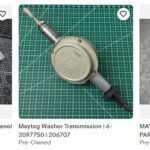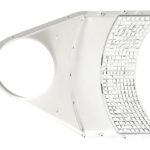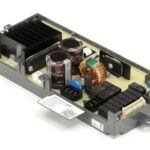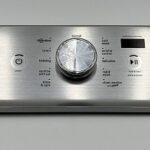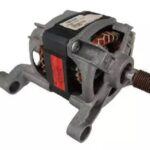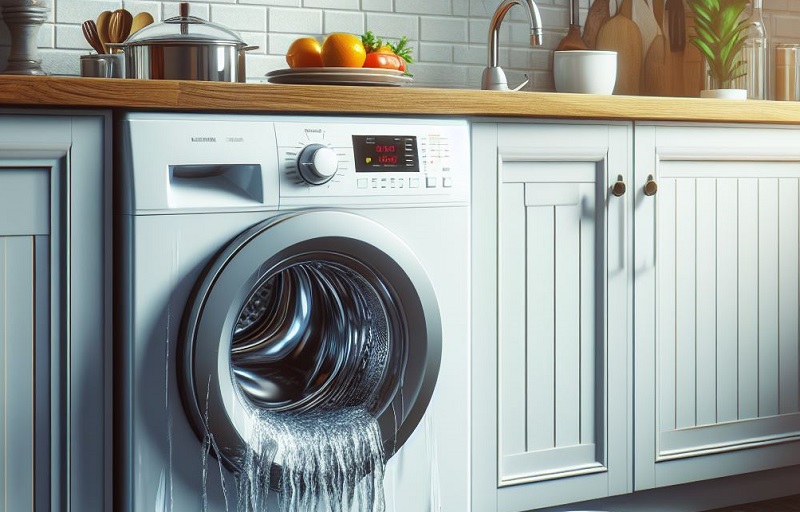
I have an “LG washing machine” at home, and I understand firsthand that a puddle of water at the base of the appliance can be alarming. It’s not just a matter of cleaning up; leaks can lead to more serious issues like water damage, mold growth, and even electrical hazards. That’s why it’s crucial to tackle this problem promptly.
“Turn a watery woe into a dry delight: Fix your leaking LG washing machine with ease.”
Typical suspects in such scenarios include door seals, hoses, and the water pump. Each of these components has a unique role in your washer’s operation, and if one isn’t functioning properly, that can spell trouble. A leaking washer can be a symptom of wear and age, or sometimes, it’s a sign that the machine wasn’t installed correctly. In other cases – the culprit could be as simple as a loose connection.
Understanding the root causes of washing machine leaks forms the basis for effective troubleshooting. By arming ourselves with this knowledge, we’re better equipped to identify and resolve issues before they spiral out of control. It’s vital to pay attention to early signs to prevent future mishaps.
In the next section, I’ll walk you through a methodical approach to pinpoint exactly where the leak is coming from. With some careful observation and a few tools, you can often diagnose the issue yourself. Keep in mind, safety is paramount; ensure the power and water supply are off before you start your detective work.
Identifying Damaged Parts in Your Leaking LG Washing Machine
- Hose connections
- Door seal/gasket
- Drain pump
- Water inlet valve
- Tub seal
- Dispenser drawer
Note: You can find your LG washer parts below.
Step-by-Step Guide to Diagnosing Your LG Washing Machine Leak
If you find yourself with a puddle on the floor near your LG washing machine, it’s time to play detective. Figuring out where the leak is coming from is the first step in fixing it. Before you jump in, make sure to unplug your washing machine from the power outlet. Safety should be your top priority.
- FIRST, inspect the most common culprits: hoses. The fill hoses connect your washing machine to the water supply. Check for any signs of damage or wear, and ensure they’re fastened securely. Don’t overlook the drain hose; leaks here often occur where it attaches to the machine or during the drain cycle.
- NEXT, take a look at the door seal, especially if you have a front-loader. A faulty door seal, also known as a gasket, can let water escape during operation. Look for tears or foreign objects that might prevent the door from sealing properly.
- LASTLY, examine the water pump. This component is essential for circulating and draining water. Leaks can originate from a damaged pump or a loose connection. To access the pump, you may need to remove the washing machine’s back panel, which should be done with caution.
While diagnosing, it’s wise to run a test cycle to determine when the leak happens. This could provide clues about the source. You may need to do this multiple times, checking different components during various cycle stages.
Remember, you’ll need a flashlight, a towel for cleanup, and perhaps a screwdriver if you intend to remove any panels. Keep a notepad handy to jot down your observations; it might be useful if you decide to call in a professional later.
Say Goodbye to Leaks: Fix Your LG Front Load Washing Machine
Watch now to learn how to banish leaks and keep your laundry room dry!
DIY Fixes for Simple Leaks: Seal the Deal Yourself
You might find that the cause of your LG washing machine’s water leak is something you can handle without the need for a service call. Sometimes, a quick fix can save you time and money. I’ll walk you through some common remedies you can try. Remember, safety comes first, so always unplug your machine before you start any repairs.
A common issue is loose connections. Hoses can become loose over time due to the machine’s vibrations. Check that the clamps on the drain and fill hoses are tight. If the hoses have cracks or significant wear, it’s time to replace them. This is a straightforward task: just remove the old hoses, attaching new ones, and secure them with clamps.
Next up is the door gasket, also known as the door seal. Over time, it can accumulate grime, which causes water to leak from the front of the washer. Inspect the seal for any foreign objects or buildup and give it a thorough cleaning. If the seal is damaged, you can find a replacement specific to your LG model and replace it by following the manufacturer’s guidelines.
In some cases, you might find small leaks in the drum or water pump. While a water pump might require a professional’s touch, small leaks in the drum can sometimes be temporarily patched with a suitable sealant. However, it’s vital to note this is not a permanent fix and can serve as a short-term solution until you can get professional assistance.
Regular maintenance can keep these issues at bay. Simple actions like not overloading the washer, using appropriate detergents, and regularly checking for wear can significantly extend the life of your machine. Also, consider using water hammer arrestors to absorb the shock of sudden water flow stoppage, reducing stress on both your hoses and connections.
When to Call in the Experts: Understanding the Limits of DIY
I’ve outlined some hands-on solutions you can tackle to address leaks in your LG washing machine. While these fixes often work, it’s important to know when a situation is beyond a DIY fix. Certain situations may warrant professional intervention; understanding when to step back and call an expert can save you time and potentially costly mistakes.
You might see more complex issues, such as internal leaks or electronic malfunctions, which require a specialty touch. If, after your repair attempts, the leaking persists, or if you’re uncomfortable performing any of the suggested fixes, seeking help from a certified technician is the wise move.
Hiring a professional comes with significant advantages. A certified technician brings expertise, experience, and the right tools for intricate repairs. They can often diagnose issues that aren’t immediately apparent to the untrained eye.
Always consider your washing machine’s warranty before proceeding with repairs. DIY fixes on certain parts could void the warranty. So, when in doubt, check your user manual or contact the manufacturer for guidance.
Lastly, it’s worth being aware of the signs indicating a more serious problem. If you notice strange noises during a cycle, error codes flashing consistently, or water leaking from the machine’s base, these symptoms could point to a problem that’s not just skin-deep. In such cases, it’s essential to turn off your appliance immediately and consult with a professional to prevent any further damage.
In summary, while many washing machine repairs are manageable with a bit of know-how and elbow grease, know your limits. By recognizing when to bring in the experts, you ensure that your LG washing machine will be properly repaired, maintaining its performance and extending its life.
Find Your LG Wasing Machine Parts
More Washing Machine Parts and Guides:
- Used Maytag Washer Parts
- 33001006 Washer Dryer Combo Duct Vent Unit
- W11246700 W11196392 Whirlpool Washer Control Board
- Maytag Washer Control Panel W11035067 W11135393
- Splendide Washer Dryer Motor 116190223 WD802M WDC1024M
Note: You can view more “Common Appliance Issues and Solutions” here.

